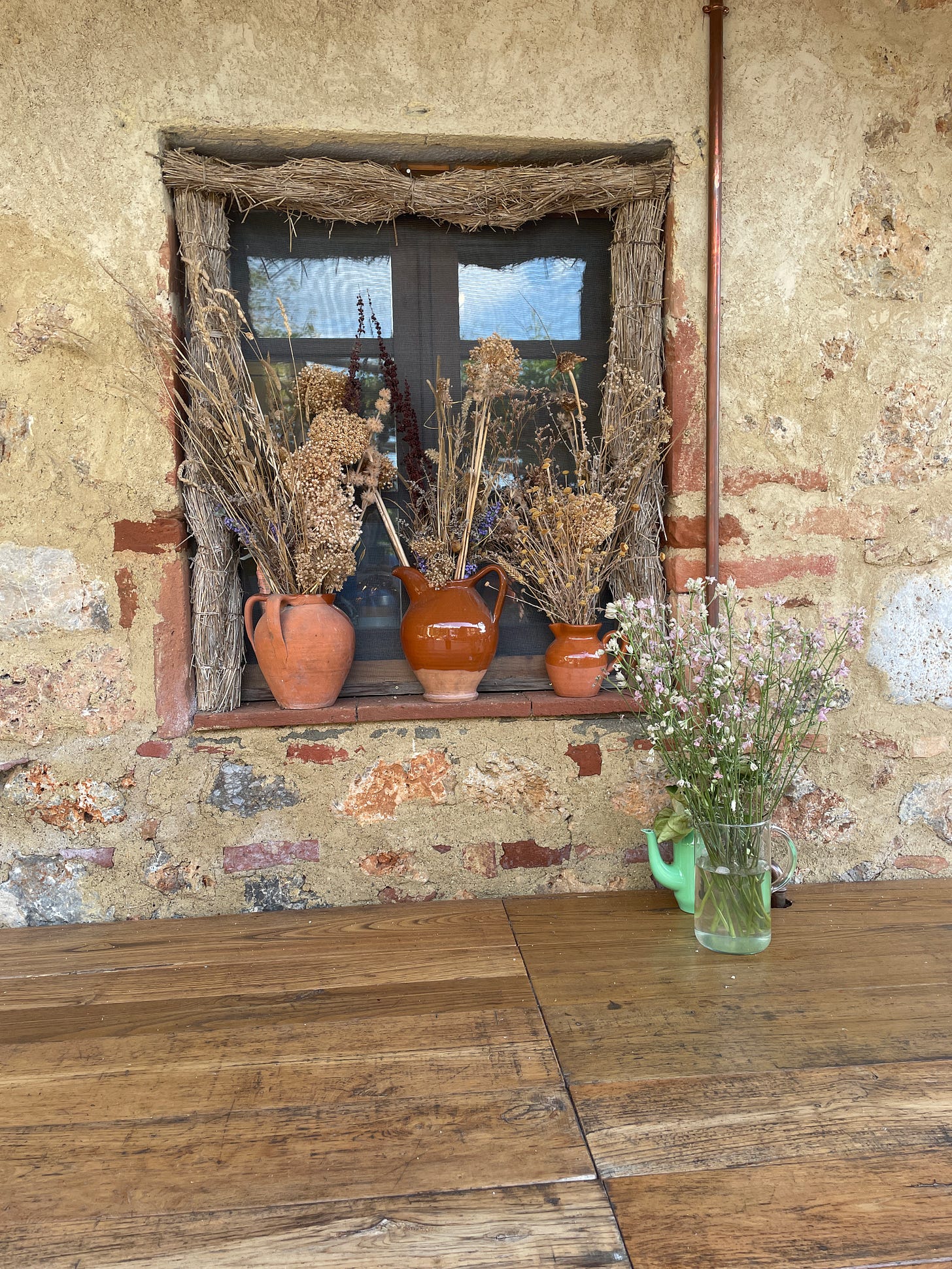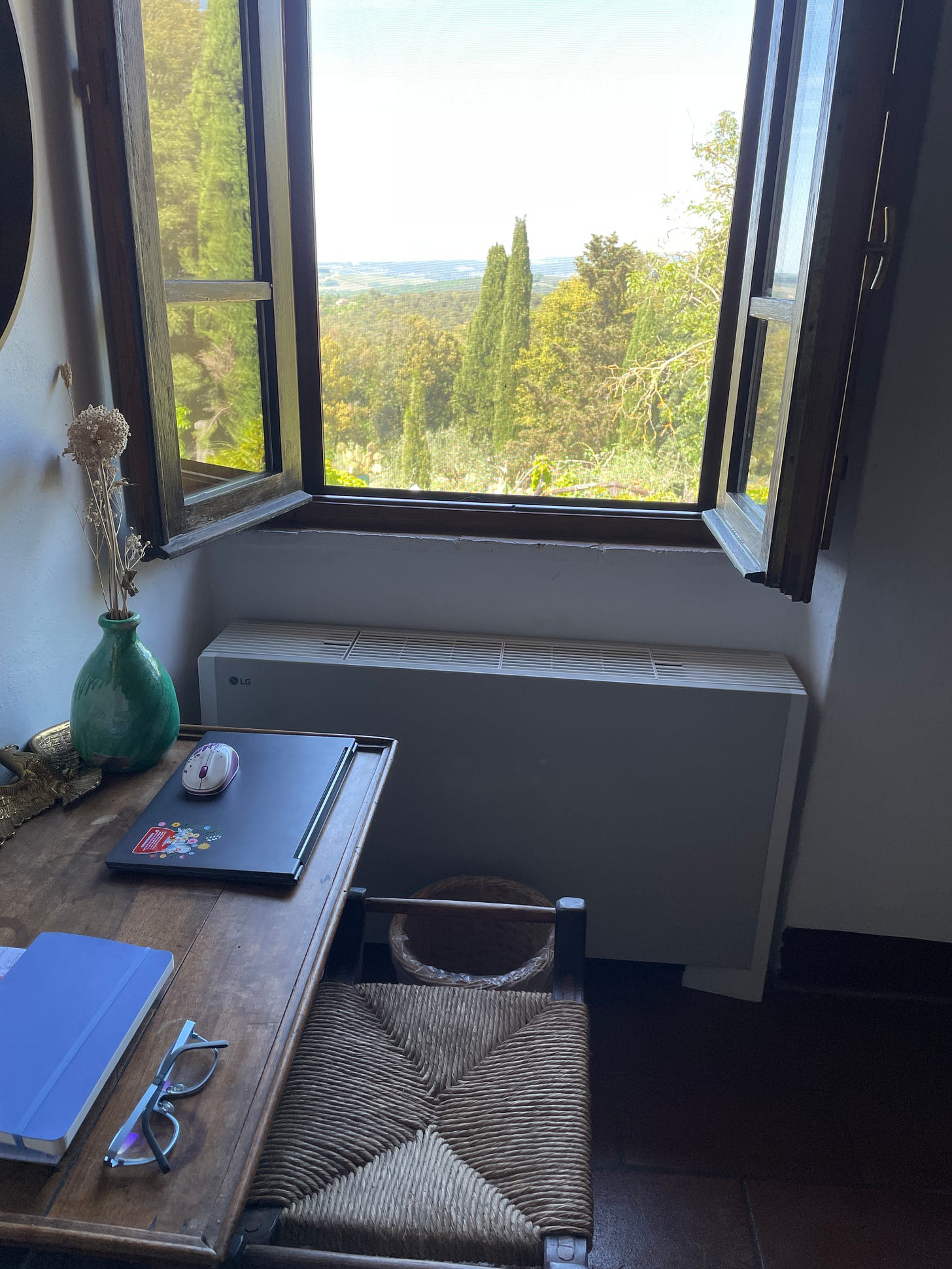
Earlier this month, I spent five days in a 500-year-old farmhouse in Tuscany at a writing retreat.
I mean, come on. Whose life was I living?
No, that’s not right. It was my life, and I made it happen for myself. It was impulsive and it wasn’t; as soon as I saw the announcement about it, I knew I had to be there.
(Did my obsession with Tuscany begin when I saw Stealing Beauty in my 20s? Liv Tyler’s ingénue visiting an artist’s retreat hosted by the ever brilliant Jeremy Irons? Perhaps.)
Wherever it started, I have felt called to the region for decades. And so finally - finally - I went. Surrounded by natural beauty and brilliant, creative women, I wrote. And wrote. And wrote some more.
While drafting my memoir-in-micro-essays, I’ve been letting the stories come out in whatever order they want to, planning to move them around like puzzle pieces later. But one story I was drafting while on this retreat rose up to present itself as a key turning point in the story of my estrangement from my father, the foundational issue of the memoir.
The event in question was insignificant on the surface, an argument over something that now seems kind of silly. But I realized that at the time, for the first time, I drew a line in the sand and waited for him to cross it.
I was surprised by this realization. The specific memory of that argument has always remained clear, but I’d often brushed it off in the face of the larger and more potent ways he let me down. Yet here I was, allowing it time and space to breathe, and it revealed its power.
The Groundwork for Your Story:
Message: what you want to say, and why
Character Arc: how they are going to change internally
➡️ Turning Points: key plot points that affect this change
What I really want to say about this is that many stories don’t follow a traditional story arc. Especially if they are true stories pulled from our own memories. Life is messy, and stories about life can be unwieldy.
But we do need to identify key points where something changed for the character (in this case, a younger version of me.) These key points may lead them toward where you want them at the end of the story, or they may lead them away from that goal temporarily.
As you are drafting, see if a scene holds a certain heightened energy. If so, spend some time with it. Free write about it. Why is it rising to the top? What is happening for your character? It is likely a turning point in the story.
In Case You’re Skimming…
Every story has key turning points where the events lead the character to change internally.
This change may be toward where you want them to end up, or temporarily away from it.
Identifying moments or scenes in a story that feel energetically heightened as you’re drafting can help you pinpoint your story’s turning points.
Go on a writing retreat. Seriously.
This trip was a turning point for me, and I’m excited to see what comes next.
Write bravely, my friends.
Warmly,
Stephanie
P.S. I’ll be here when you’re ready.
P.P.S. Love this post? Please share it with a friend!
This is a space where we talk openly and vulnerably about the beginning stages of writing - the ups, the downs, and the sticky-stickiness of putting new words on the page. Your support allows us to keep talking about it in paywall-free posts like this one. Please consider becoming a paid subscriber for less than the price of a single latté each month. ☕ Thank you!









Such a wonderful post. I had an idea for a novel whilst on the retreat, one that this time I don’t want to give up on. Instead of rushing straight in and writing (like I have done with previous ideas), I’ve decided to sit with this one and plan first.
Thank you for this great advice on structuring a story.
It was so lovely meeting you Stephanie 🥰 Looking forward to reading more of your work.
A lovely and inspiring post, Stephanie.
I especially love this line: "I realized that at the time, for the first time, I drew a line in the sand and waited for him to cross it."
So that's what was going on when you tucked yourself away to write!